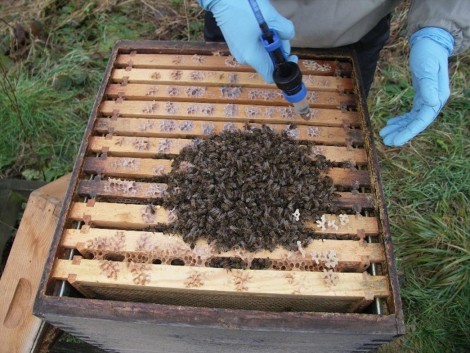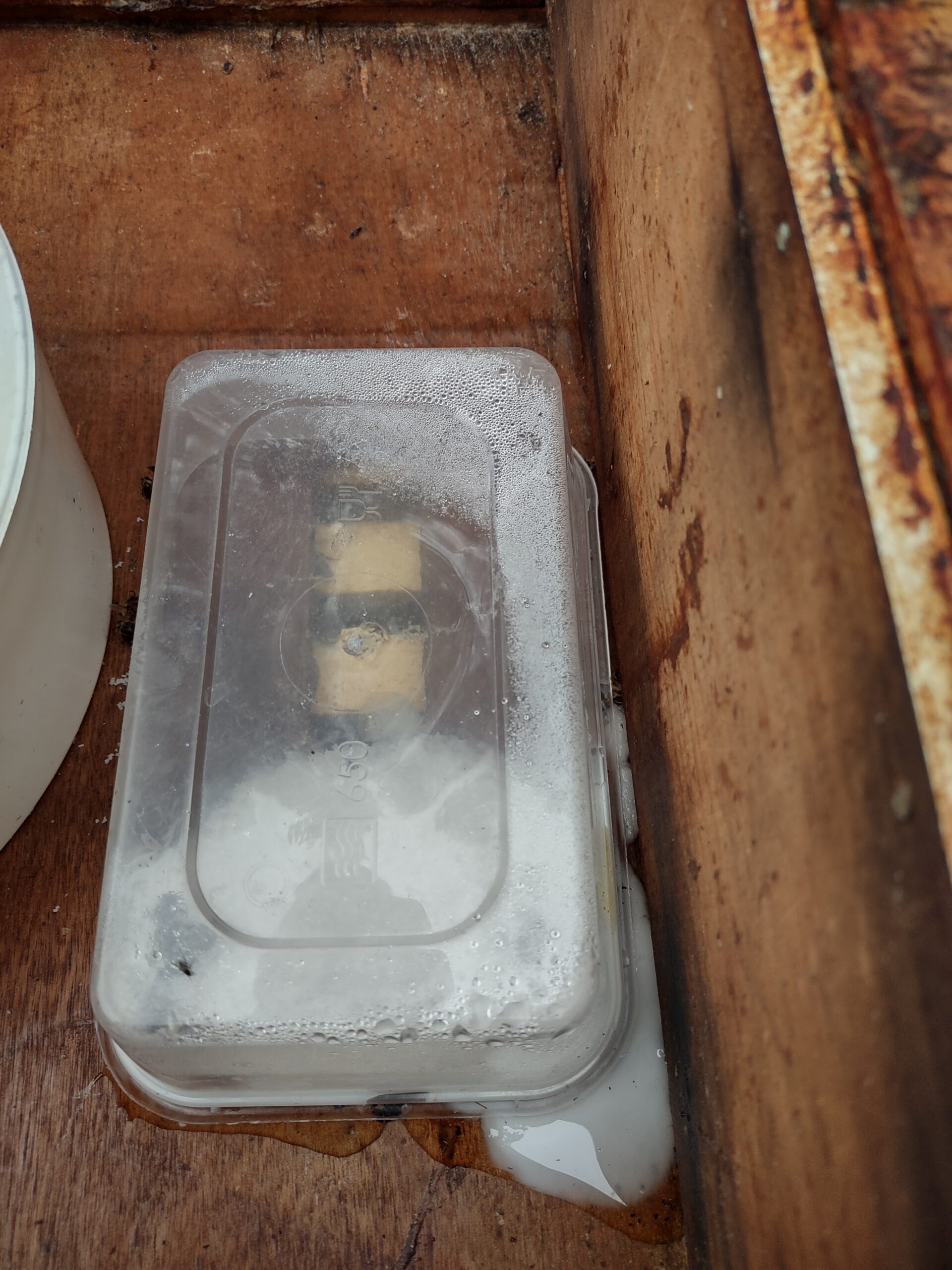 Abraham Lincoln
If given the truth, the people can be depended upon to meet any national crisis...
Abraham Lincoln
If given the truth, the people can be depended upon to meet any national crisis...
 Guildford news...
for Guildford people, brought to you by Guildford reporters - Guildford's own news service
Guildford news...
for Guildford people, brought to you by Guildford reporters - Guildford's own news service
Beekeeper’s Notes: Bees Live Four Times Longer In The Winter
Published on: 1 Dec, 2022
Updated on: 29 Nov, 2022
Hugh Coakley keeps bees in Worplesdon
It is probably the quietest time of the year for beekeepers. The bees are prepared for the winter, plenty of honey stores, a dry hive and enough fellow bees to last as a collective through until the spring.
They don’t hibernate during the cold weather, they just slow down and live longer.

A beehive opened up revealing the bees in a cluster, their way of keeping warm in the cold winter.
A bee in the summer has a life span of about six weeks. They work hard during their short time as an insect in an industrious hive, cleaning, foraging, defending the colony, processing the honey and tending the babies.
But the winter is different. They don’t have as many jobs to do and they don’t have to work as hard. So they can live for up to six months.
Their job is to get through the cold, barren period, to survive.
The queen reduces her egg laying from about August or September, more or less stopping around mid December, the winter solstice. The number of bees in the colony reduces as there are fewer new bees coming through. The colony would die out if the bees didn’t hang on.

We have fed sugar fondant in the upturned plastic tray to this colony because it didn’t have enough honey to last it through the winter. It is leaking out the side due to the heat coming from the bees below.
Food is crucial. A reasonably strong colony needs about 35 lbs, about 16 kgs, of honey to see it through to the spring.
They can’t run down to the shops to top up when it is warm enough to get out and about. But other than emptying their bowels and collecting water and tree sap for their propolis, there isn’t much more they can do outside.
Their job is to keep warm and fed and to be ready to burst into action as soon as all the lovely nectar and pollen is there again in the new year.

Click on cartoon for Dragon story: Public Asked for Views on SCC’s Proposal for Reduced Speed Limits






Recent Articles
- Dragon Review: The Pajama Game – Yvonne Arnaud Theatre
- A Hidden Gem in the Hills: Michelin-Backed William IV Pub Brings Refined Dining to Albury
- Letter: Help Reduce Speeding By Joining a Community Speedwatch Team
- Hospital Apologises ‘Unreservedly’ After Death of Disabled Girl
- Birdwatcher’s Diary No.328
- SCC Intends to Back Public Survey Result and Shorten Summer School Holidays
- A281 Expected to Remain Closed Until Repairs to Damaged Cottage Are Completed
- Surrey Heath Selling Assets to Maintain Essential Services
- Community Councils Proposed to Maintain Local Representation
- Highways Bulletin – A320 Weekend Closures


Search in Site
Media Gallery
Dragon Interview: Local Artist Leaves Her Mark At One of England’s Most Historic Buildings
January 21, 2023 / No Comment / Read MoreDragon Interview: Lib Dem Planning Chair: ‘Current Policy Doesn’t Work for Local People’
January 19, 2023 / No Comment / Read MoreA3 Tunnel in Guildford ‘Necessary’ for New Homes, Says Guildford’s MP
January 10, 2023 / No Comment / Read More‘Madness’ for London Road Scheme to Go Ahead Against ‘Huge Opposition’, Says SCC Leader
January 6, 2023 / No Comment / Read MoreCouncillor’s Son Starts Campaign for More Consultation on North Street Plan
December 30, 2022 / No Comment / Read MoreCounty Council Climbs Down Over London Road Works – Further ‘Engagement’ Period Announced
December 14, 2022 / No Comment / Read MoreDragon Interview: GBC Reaction to the Government’s Expected Decision to Relax Housing Targets
December 7, 2022 / No Comment / Read MoreHow Can Our Town Centre Businesses Recover? Watch the Shop Front Debate
May 18, 2020 / No Comment / Read More






Recent Comments